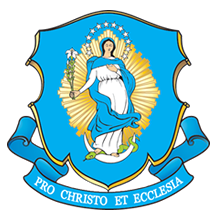
 Saint Peter, the Prince of the Apostles
Saint Peter, the Prince of the Apostles

Feast Day: June 29
Saint Peter is considered "the Rock" on which the Church was founded. A fisherman from Galilee, he was called by Christ at the very beginning of Christ's ministry. On the shore of the Sea of Galilee, Christ came upon Peter and his brother Andrew who were casting a net into the water. He invited them to follow Him, saying: "Come after Me, and I will make you fishers of men" (Mt 4:19). They dropped their nets and followed Him.
Peter's original name was Simon, but Jesus changed it to Peter, which means "rock." "You are Peter," Jesus said, "and upon this rock I will build My Church" (Mt 16:18).
Peter was special among the disciples. With James and John, he was selected to accompany Jesus to the mountain, the scene of the Transfiguration. There, he heard God pronounce the words, "This is my beloved Son, with whom I am well pleased" (Mt 3:17).
Tend My sheep
In Jerusalem, where Jesus began to prepare his disciples for the approaching end of His ministry on earth, Peter declared his faithfulness. "Lord," he said, "I am prepared to go to prison and to die with You." But Jesus answered that before the cock crows the following morning, Peter would deny Him three times (Lk 22:33-34), a prophecy that came true.
When Jesus was arrested, Peter became fearful and denied knowing our Lord three times. Peter soon repented, and Jesus forgave him. After Christ's Resurrection, He asked Peter three times: "Do you love me?" "Lord," Peter said, "You know that I love you." Jesus instructed Peter: "Feed My lambs … Tend My sheep" (Jn 21:15-17). By that, Jesus was telling Peter to take care of His Church.
Epistles
Peter spent the rest of his life preaching and working to convert nonbelievers. The only writings by St. Peter that exist today are his two New Testament Epistles, both of which are believed to have been composed in Rome to Christian converts of Asia Minor during a time of persecution.
The First Epistle is filled with warnings and calls to turn to Christ's Resurrection and the hope it provides. The second Epistle also speaks of the Second Coming and hope for the future. In ends thusly: "But grow in grace and knowledge of our Lord and Savior Jesus Christ. To Him be glory now and to the day of eternity" (2 Pet 3:18).
Peter was eventually martyred. He was crucified on the Vatican Hill upside down because he declared himself undeserving to die in the same manner as Christ.















